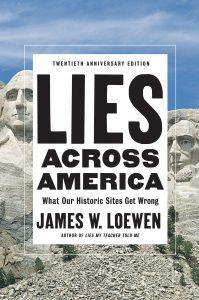 In Lies My Teacher Told Me: Everything Your High School History Textbook Got Wrong, James Loewen describes how people in the United States get a distorted understanding of their past in their high school years.
In Lies My Teacher Told Me: Everything Your High School History Textbook Got Wrong, James Loewen describes how people in the United States get a distorted understanding of their past in their high school years.
Unfortunately, when they leave school, their miseducation continues. Lies Across America: What Our Historic Markers and Monuments Get Wrong shows how our shrines of public history suffer from the same kinds of omissions, distortions, and outright falsehoods that Lies My Teacher Told Me found in U.S. history textbooks. [Publisher’s description.]
Excerpt from the Introduction
Americans share a common history that unites us. But we also share some more difficult events — a common history that divides us. These things too we must remember, for only then can we understand our divisions and work to reduce them. Markers and monuments could help, except they suffer too often from the same forces that created the divisions in the first place. Moreover, most markers, monuments, and other historic sites don’t just tell stories about the past; they also tell visitors what to think about the stories they tell. Many sites seek to transform our secular history — events that actually happened on the earth, done by real people with the usual mix of admirable and despicable characteristics — into hallowed milestones along the path of our sacred journey as a nation. But if a monument or marker misrepresents the past, or tells it from only one viewpoint, then whatever moral imperative it suggests must be suspect. If we cannot face our history honestly, we cannot learn from the past.
Americans agree with this proposition when applied to other countries. We commend Germany for preserving concentration camps as monuments of remembrance. We commend the Russians for changing Leningrad back to St. Petersburg rather than continuing to honor a man whose political philosophy wreaked havoc on so many lives. We understand when South Africans, after dethroning white supremacy, set about re-evaluating their statues and museum exhibits honoring white supremacists. Surely the United States — like Germany, Russia, or South Africa — needs to rethink its past and reassess how it commemorates that past in stone. Surely we don’t want to be people of the lie, complicit with the worst in American history because we cannot stand to acknowledge it. The way we heal is to come face to face with the truth, and then we can better deal with it and each other.
Indeed this process is already underway. Throughout the book, entries will show how history as remembered in town squares and on highway waysides has changed over time. Even though monuments are written in stone, they are not permanent. Americans have forever been talking back to their landscape, whether by persuading a state to revise the wording on a historical marker or by vandalizing a statue. On the whole, it is a healthy process. The history written on the American landscape was written by people, after all, and we the people have the power to take back the landscape and make it ours. Read the full Introduction | Table of contents.
ISBN: 9781620974339 | The New Press
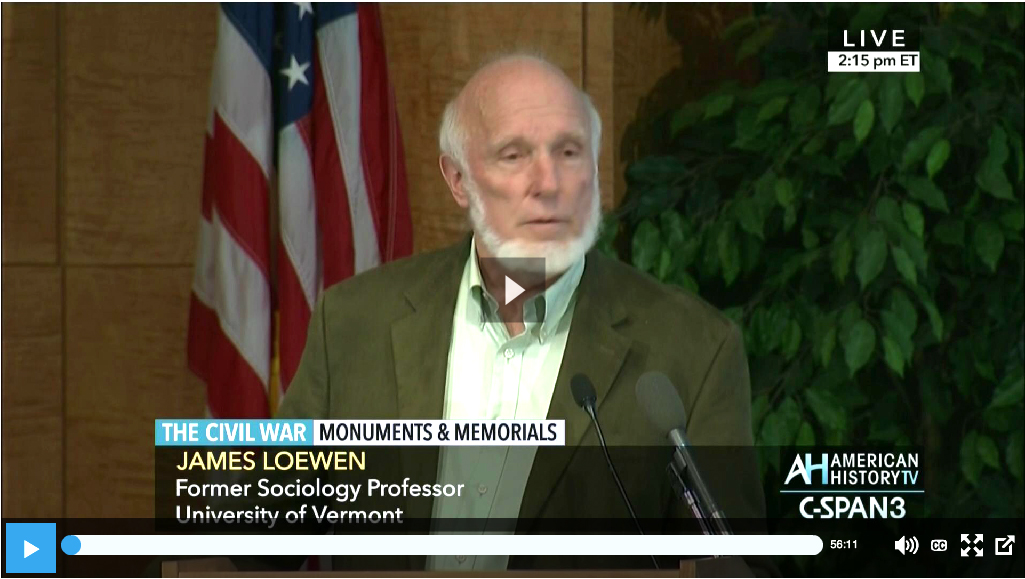 Confederate Monuments and Memorials, Feb. 25, 2017
Confederate Monuments and Memorials, Feb. 25, 2017
James Loewen discusses new perspectives on Confederate monuments. Watch online at C-SPAN.

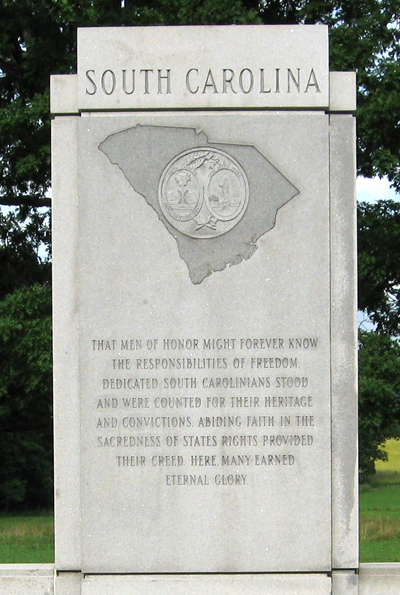
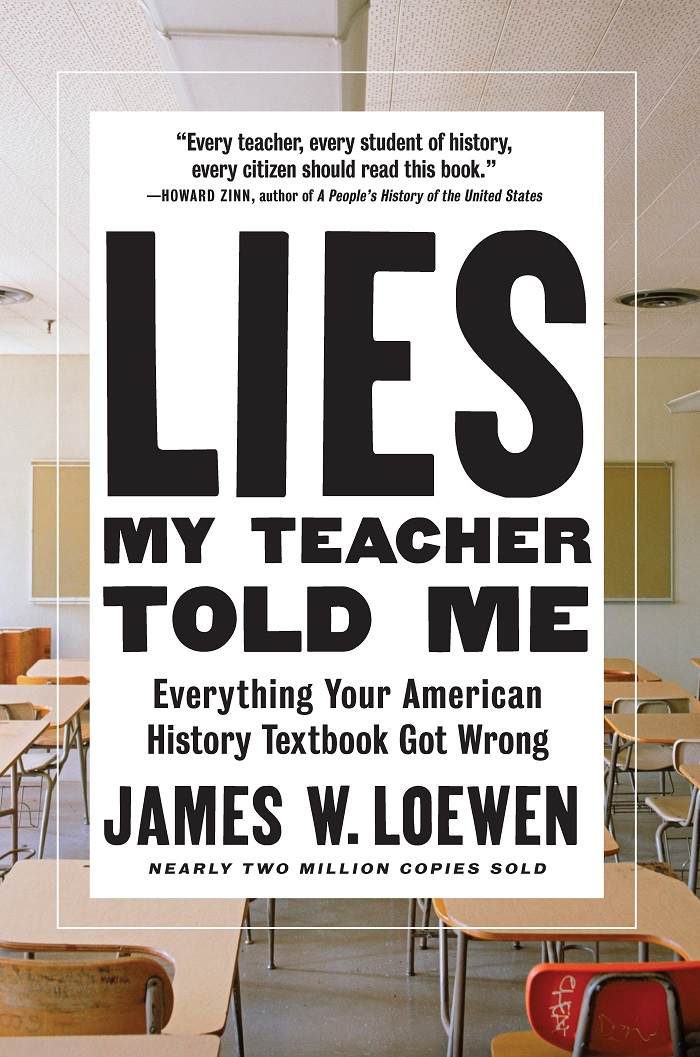
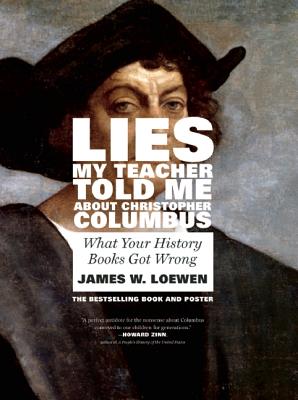







James Loewen is a marvelous writer and historian. I read “Lies My Teacher Told Me” and was delighted with his reasoned, unbiased presentation of the facts that disagreed with the party story. It was clear and admirable that James’ sole intent was to stir critical thinking so that by understanding history we need not repeat it. I plan to read the rest of his books!